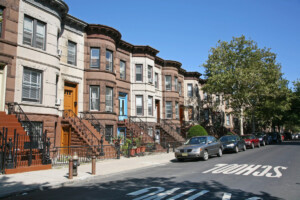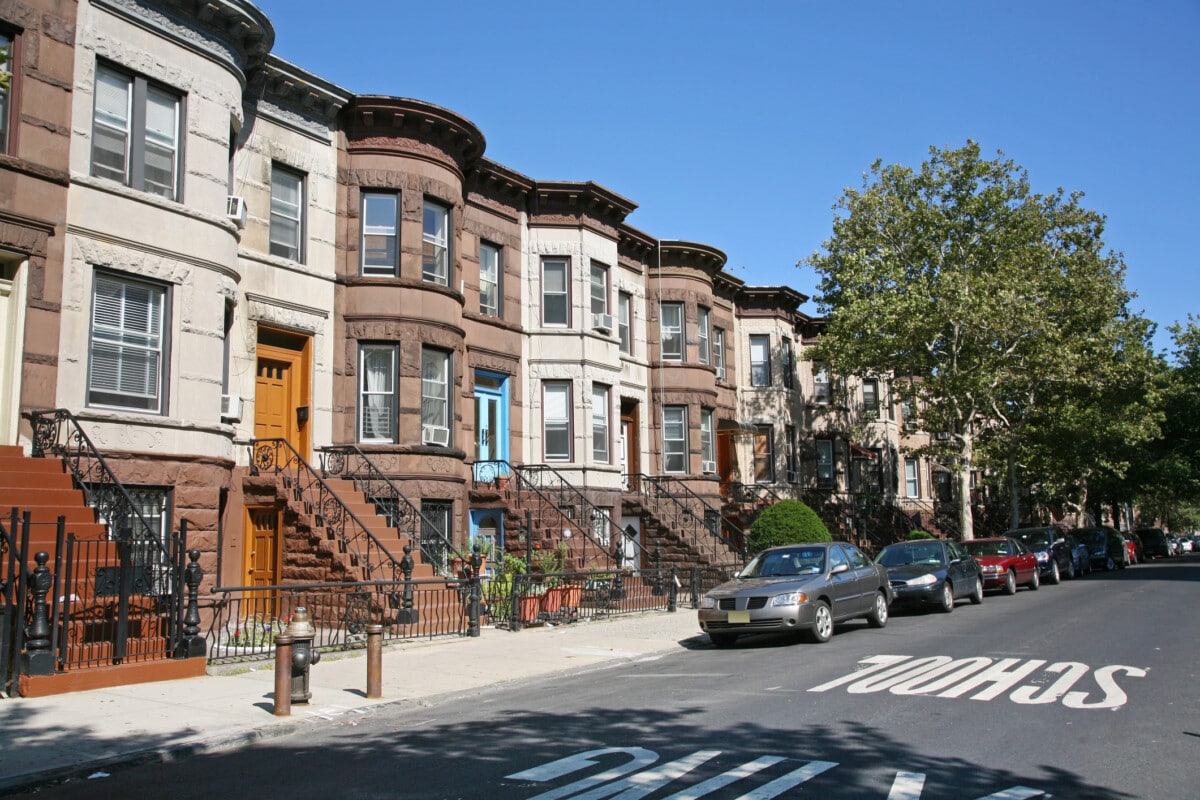
It’s no secret that buying a home is a significant decision, and there’s a lot more to consider than just the price of the home. Another large expense to consider when you’re buying a home is how much closing costs will be.
Closing costs are the fees and expenses associated with finalizing a real estate transaction and transferring ownership of a property from the seller to the buyer. If you’re feeling unprepared or overwhelmed, don’t worry. To help you budget for closing costs, this Redfin article will cover how much closing costs are in New York, who pays for them, and which costs you can expect to pay as a buyer and as a seller.

How much are closing costs on average in New York?
In addition to the down payment, homebuyers will also need to pay closing costs before securing the keys to their new home. As a general rule of thumb, you can expect closing costs in New York to add up between 2%-5% of the home’s purchase price. But it’s important to remember that this is just a range and the total amount will depend on a number of factors, such as the purchase price of the home, the type of loan, and any adjustments negotiated with the seller.
For example, if you’re buying a home in White Plains, which has a median sale price of $533,000, closing costs could range anywhere from $10,660 to $26,650. Or, let’s say that you’re buying a home in Manhattan, which has a median sale price of $1,325,000. Closing costs for a home here could be between $26,500 and $66,250.
Who pays closing costs in New York?
In most areas, including New York, both the buyer and the seller will pay closing costs. But, each party’s closing costs amount will vary depending on what they are required to pay. Another thing to keep in mind is that buyers typically pay for closing costs out of pocket, while the seller’s closing cost payments are often deducted from the home sale proceeds.
Buyer closing costs in New York
For homebuyers in New York , you can expect to pay between 2%-5% of the purchase price. In most cases, you’ll pay earnest money, typically 1% to 3% of the home price, upon reaching mutual acceptance in your home purchase. This deposit is subtracted from your closing costs, reducing the total amount due at closing. Here are a few common closing costs that buyers typically cover:
- Appraisal fee: Your mortgage lender will require a home appraisal to ensure the home value is equal to or more than the loan amount. Home appraisals typically cost between $300 and $500, depending on location. If you pay at the time of service, it will not be included in your closing costs.
- Inspection fee: Home inspections in New York generally range from $300 to $500 – they can vary based on local rates and the property’s specific characteristics. If you don’t pay for the inspection at the time of service, this will need to be paid at closing.
- Loan origination fee: Most lenders charge a fee for creating your loan. Be sure to check with your lender what this fee covers and if it can be waived or negotiated.
- Loan processing fee: In addition to the origination fee, your lender may also charge a fee for processing your loan. This typically covers underwriting and related services. It’s recommended to discuss this fee with your lender to understand what this fee covers and if it can be waived.
- Loan discount points: If you buy discount points to lower your interest rate, you’ll pay a one-time fee at closing. These points can lower your rate by 0.25% to 0.5%, but consider your long-term homeownership plans before paying for a reduced rate.
- Private mortgage insurance (PMI): When your down payment is under 20%, you’re typically required to pay PMI. Some loans allow upfront PMI payment at closing, giving you the choice between higher upfront costs or increased monthly payments.
- Title insurance: Title insurance is a one-time closing cost, with buyers commonly paying for both lender and owner policies.
- Homeowners insurance: Your annual homeowners insurance premium may be included in your closing costs in New York.
- Homeowners Association dues: If your property is part of a homeowners association, you’ll likely pay one month’s dues upfront at closing. These fees vary and contribute to maintenance and operational costs.
- Property taxes: As part of closing costs in New York, you may be required to prepay a portion of your property taxes at closing.
Seller closing costs in New York
How much closing costs are in New York for sellers will vary between each transaction, but here are some of the common fees and costs covered by sellers:
- Real estate agent commission fees: These fees can be a significant cost for sellers. Commission fees may vary and are subject to negotiation. Sellers should discuss their options with their agent.
- Homeowners Association fees: Sellers are generally responsible for settling any outstanding HOA fees or assessments up to the closing date, and they may need to provide HOA documents to the buyer as part of the sale.
- Property taxes: Sellers are responsible for any property taxes that have accrued but not yet been paid up to the closing date. These unpaid property taxes are typically prorated for the months that you owned the property.
- Title insurance: Sellers sometimes cover the cost of the buyer’s owner’s title insurance policy. This policy protects the buyer from any potential title issues that may arise after the property is sold. The cost of title insurance can vary but is generally based on the home’s sale price.
- Transfer taxes: If you’re selling a home in New York, you can expect to pay a state levied real estate transfer tax. These taxes are typically calculated based on the sale price or assessed value of the property. The specific rates and regulations can vary widely, so it’s important to be aware of the requirements in your area and factor in these potential costs when selling a property.
Median home sale price data from the Redfin Data Center during July 2024.
The post How Much Are Closing Costs in New York 2024? appeared first on Redfin | Real Estate Tips for Home Buying, Selling & More.
from Redfin | Real Estate Tips for Home Buying, Selling & More https://ift.tt/LgSzA7C


No comments:
Post a Comment